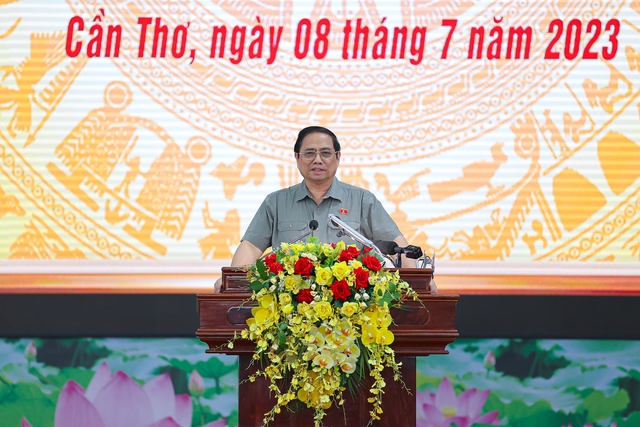Viet Nam to borrow US$2.53 bln from six development partners
VGP – Prime Minister Pham Minh Chinh has agreed in principle to a plan to borrow US$2.53 billion from six development partners for 16 development projects in the Mekong Delta – Viet Nam's biggest rice hub.

Prime Minister Pham Minh Chinh addresses a meeting with leaders of 13 localities in the Mekong Delta region, Can Tho, July 8, 2023. Photo: VGP
Prime Minister Pham made the above decision at a meeting with leaders of 13 regional localities on Sunday.
The development partners are the Asian Development Bank, the World Bank, the French Development Agency, the KfW, Japan International Cooperation Agency, and the Export-Import Bank of Korea.
For the 2021-2025 period, the Mekong Delta region planned to implement 62 projects using ODA and concessional loans with total capital of around US$2.8 billon.
The potential of Mekong Delta has not been effectively tapped due to several reasons, including perceived seriousness of climate change impacts and its weak transport infrastructure which has become a bottleneck hindering the development of this region.
To date, the region has 171km of expressways and the figure is expected to increase to 554km by 2026 as eight expressway projects are under construction.
In addition, if Viet Nam is one of the countries most vulnerable to climate change, the Mekong Delta has been hit hardest and much sooner than previous scenarios.
If the sea level rises by 100cm and if no solutions are taken, some 39 percent of the total area of the region would face the risk of flooding. Localities with the highest risk are Hau Giang (over 80 percent of its area), Kien Giang (nearly 77 percent), and Ca Mau (about 58 percent), according to a climate change scenario created in 2016./.
